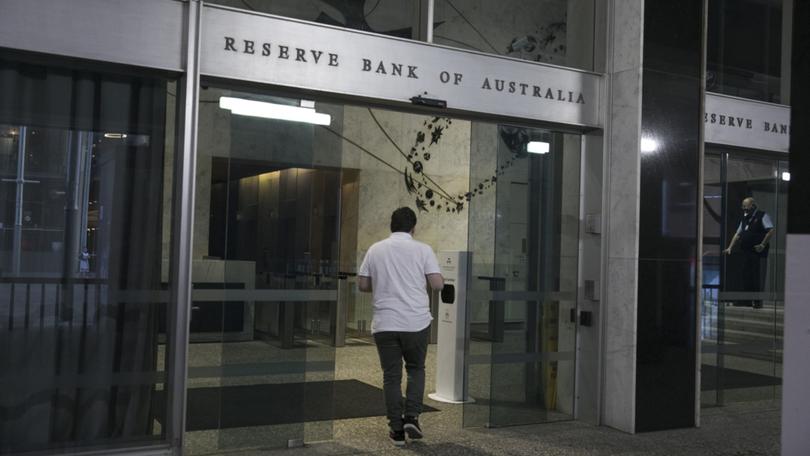Reserve Bank of Australia board expects most Australians can meet debts even if inflation is more persistent
Even though some are having trouble meeting debts and essential expenses, loan arrears rates are still low. The RBA expects most Australians will manage even if inflation proves difficult to push down.

Risks to Australia’s economy are largely balanced, the Reserve Bank of Australia board believes, which fuelled its decision last month to keep interest rates on hold but not “rule in or out” any future hikes or cuts.
The cash rate was left at 4.35 per cent — a level it has been at since November last year — with the RBA board noting analysts expected fewer cuts to rates in Australia than elsewhere, partly because rates had not increased by as much as they had in comparable countries.
Minutes of the RBA board’s March meeting, released on Tuesday, also shed further light on its bid to keep the economy on an even keel. They show that even though some households are having trouble in servicing debts and meeting essential expenses, housing loan arrears rates are still low, and major banks have cut their expectations of potential losses on loans.
Sign up to The Nightly's newsletters.
Get the first look at the digital newspaper, curated daily stories and breaking headlines delivered to your inbox.
By continuing you agree to our Terms and Privacy Policy.The minutes were described by Commonwealth Bank head of Australian economics Gareth Aird as the RBA’s “most dovish piece of communication” since it started hiking rates in May 2022. A dovish economics view generally supports lower rates and supporting lower unemployment.
Westpac chief economist Luci Ellis — a former RBA assistant governor — described the RBA as having a “Goldilocks” moment, that the cash rate was assessed as “just right, at least for the time being”.
The RBA also noted real household disposable income had started growing again — thanks to dissipating inflation and wages growth — and would pick up further this year once pre-announced Stage 3 tax cuts kick in and disinflation continues, albeit it is expected to be slow.
“Strong conditions in the labour market and the large savings buffers accumulated during the pandemic were helping households adapt to challenging economic conditions and restrictive monetary policy,” the minutes state.
Despite some households struggling, most Australians were able to service housing and other debts and meet essential expenses. The RBA expects this will remain true even if inflation proves more persistent than expected.
The national inflation rate was 4.1 per cent in the year to December 31, with fresh figures expected later this month. The central bank expects inflation will not return to its target of between 2 and 3 per cent until later next year.
The RBA is also looking at the experience of other countries with disinflation, noting it had not been a smooth path for many and could serve as a lesson for Australia.
But Mr Aird said the RBA board’s next move was likely a cut and it was “reluctant to let on” that was its view. CBA expects rate cuts will begin in September.
“The board behind closed doors will view the likely next move in the cash rate as down,” he said. “But it is too early for the board to shift to an easing bias.”
Elsewhere the RBA also noted wages growth was consistent with its inflation target but remains concerned about lagging productivity growth. Wages growth at current levels was only consistent if productivity growth increased to its long-term average.
The RBA minutes show the board considered implications for the cash rate if productivity did not pick up as assumed, and any economic adjustment associated “may not be smooth or immediate”.
RBA governor Michele Bullock last month said it was important not to “get too caught up in the individual quarterly movements in productivity — it is a long run concept”.
“Productivity ultimately is something that is going to be based on businesses investing. We need it to grow the pie so we all have more income that we can share around amongst us all,” she said at her post-board meeting press conference.
